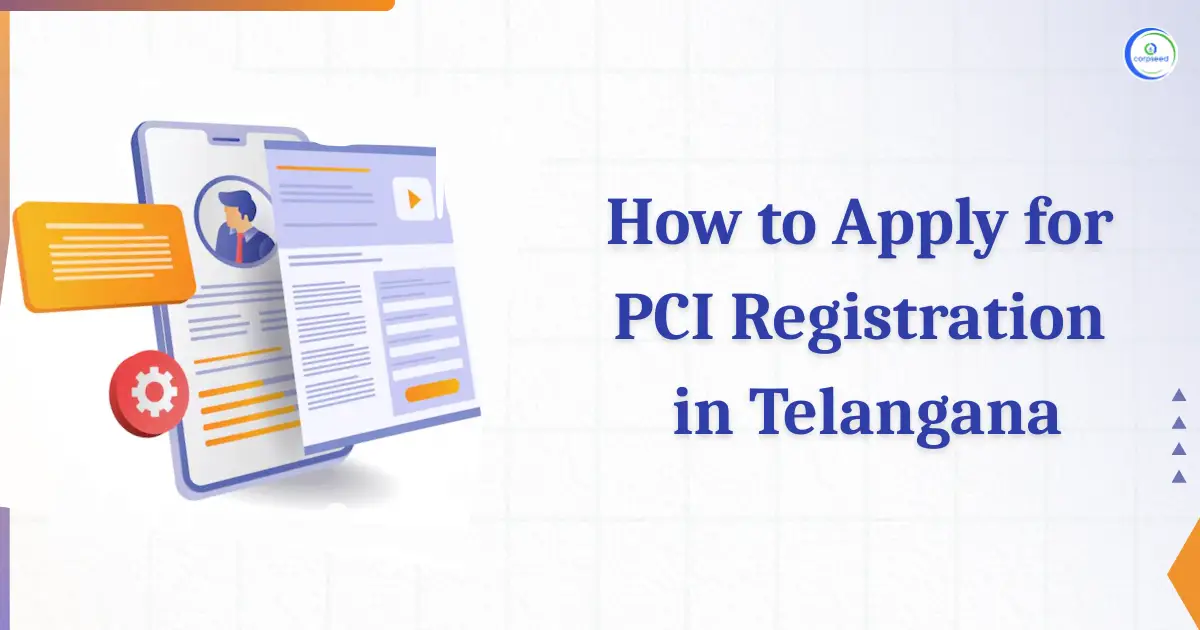Overview: Packaging Industry
More than half of the world's packaging is made up of consumer goods including food and hygiene items. In terms of packaging, convenience items consumption is essentially unaffected by economic cycles. The most important function of packaging is to ensure that consumers are safe when using a product. Packaging protects things during transportation, extends their useful life, and even conveys critical information about the product's composition and purpose. Packaging that is well-designed encourages proper transit and storage while also decreasing waste across the supply chain.
Table of Contents
--------------Blog Contact Form-------------
The packaging sector in India is expected to increase at a rate of more than 26.7 percent every year. The market's rapid rise is being driven by the pharmaceutical and food and beverage industries. Huge investments in the food processing, personal care, and pharmaceutical end-user sectors are helping the packaging industry to expand. The data was recently issued by the Associated Chambers of Commerce and Industry of India. Growth is aided by the creation of India's middle class, the rapid expansion of organized retail, the expansion of exports, and the rise of India's e-commerce sector. Packaging consumption in India has surged by 200 percent in the last decade, from 4.3 kilograms per person per annum (PPPA) to 8.6 kg PPPA, according to the Indian Institute of Packaging (IIP). Growth is aided by the creation of India's middle class, the rapid expansion of organized retail, the expansion of exports, and the rise of India's e-commerce sector. Packaging consumption in India has surged by 200 percent in the last decade, from 4.3 kilograms per person per annum (PPPA) to 8.6 kg PPPA, according to the Indian Institute of Packaging (IIP).
Global Market Outlook
The worldwide packaging market is predicted to grow at a compound annual growth rate of 7.5 percent. Market growth is being fuelled by factors such as increasing e-commerce sales and the growing demand for FMCG and pharmaceutical packaging, but raw material shortages are suffocating it. The plastics/polymers business is predicted to grow at a lucrative rate as a result of the need to feed and help manage garbage. Because demand from a variety of end-use industries is growing, especially in the food and beverage sector, plastic packaging utilization will skyrocket during the COVID-19 crisis. The easy availability of packaging raw materials such as fiber plastic and glass, as well as the existence of manufacturing facilities by major packaging companies, will propel significant growth in the Asia Pacific region. With 40.6 percent of worldwide packaging usage, Asia is the most important market. North America comes in second with 22.6 percent of worldwide packaging utilization, followed by Western Europe with 20.3 percent. The industry will profit from rising real wages, population growth, urbanization, and the expansion of retail infrastructure in Asia, Africa, the Middle East, and Eastern Europe. As a result, package utilization in all of these regions will rise faster than the global market average.
Packaging Industry in India
The packaging sector in India is rapidly expanding. It has a direct or indirect commercial impact on all other industries. According to industry experts, the Indian packaging industry's annual turnover would reach $ 32 billion by 2025, up from $ 24.6 billion now. This industry is growing at a pace of around 15% each year. According to the Mckinsey research, India's middle-class population would increase tenfold by 2025. It will increase the amount of packaging material consumed. As a result, it's safe to predict that the packaging sector will continue to expand. In India, the packaging sector is the most appealing emerging market for investment.
Flattened cans, printed sheets, and components, crown cork, PVC caps, plastic film laminates, craft paper, paperboard, and packaging machinery are among the exports of the Indian packaging sector, while tinplate, coating, and lining compounds are among the imports. Laminates and flexible packaging, particularly PET and weaved sacks, are the fastest expanding packaging segments in India. The demand for packaging in India is being driven by the country's retail growth, eCommerce boom, and growing consumer goods consumption. In terms of output, consumption, and future possibilities, the food processing industry is the largest in the world.
Pharma, agro-based, cosmetics, textiles, chemicals, and other industries are also major consumers. Almost all user sectors that are expanding appreciably-processed foods, hard and soft beverages, fruit, and marine products - have a lot of promise. The purpose of writing this post is to help novice entrepreneurs with low-cost packaging company ideas. The projects featured here can be started on a small or larger size.
How to Start a Packaging Company?
1. Create a Business Plan: The management and operational plans for the business should be included in the business plan. This will aid in the organization of future development ideas and the efficient use of funds. This must include a company cost-benefit analysis, industry trends, and a business summary.
2. Select Business Structure: The type of business structure chosen will be determined by the nature of the company. It is critical to manage and conduct a firm as a sole proprietorship or one-person operation. Other options include limited liability partnerships, which allow multiple people to pool their funds. When the scope of the operation is large, the company form of business is the best option. The registration process will differ depending on the type of business structure. Each structure has its own registration procedure. The incorporation of a company necessitates the submission of a number of documents. After incorporation, further permits and registrations must be obtained in order to begin activities.
3. Location of packaging Unit: Because many of the inputs utilized in the packing units are perishable, the location is crucial. It's critical that the packing unit is situated so that inputs can be received without compromising the product's quality. The sale of packaged products on the market is also crucial. The packaging unit should be located in a way that is compatible with both the acquisition of raw materials and the selling of packaged items.
4. Bank Current Account: A current bank account is required to conduct business at the moment of incorporation. All tax returns filed after the incorporation are done using the business's existing bank account.
5. FSSAI Registration: The Food Safety and Standards Act of 2006 requires a food license to conduct business in the areas of food production, manufacturing, processing, distribution, sale, import, export, and stocking. Dairy farms, meat processing plants, and hotels all have their own set of rules and restrictions. At the time of filing an application for registration, multiple declarations and resolutions must be filed.
Types of FSSAI Licenses:
- Basic Registration: All small businesses or start-ups which have an annual turnover of INR 12 lakh and above require this registration. If the sales increase, the basic registration can be upgraded to the state license.
- State FSSAI license: Mid-sized companies with an annual turnover of INR 12 to 20 crores are eligible for the state license.
- Central FSSAI license: Large businesses with annual turnover over and above INR 20 crores are typically eligible for central licenses. This is also required to supply goods and services to government offices, import, and export food products.
6. Small-scale Industry Registration: The Ministry of Micro, Small, and Medium Enterprises is in charge of registration. The registration of Micro, Small, and Medium Enterprises (MSME) gives these businesses legitimacy. All small and accessory units having plant and machinery valued at less than INR 10 million should apply for registration with the respective State Government's Director of Industries. The major goal of this registration is to keep track of such units' statistics and to offer various incentives and assistance programs to them. As a result, state governments will be responsible for promoting and developing these businesses.
7. NOC from the Municipal Body: After obtaining a No-Dues Certificate from the Municipal Corporation, a NOC (No Objection Certificate) for the purpose of a sale deed can be obtained from the DTP (District Town Planning) Office. The provision of a property's No-Dues Certificate is an important service function of the Municipal Corporation.
8. GST Registration: Any firm that wants to operate legally must first register for GST. Depending on the registration requirement, returns must be filed monthly, quarterly, or annually.
9. Trademark Registration: This is critical in order to preserve brands and slogans that are specific to a company or individual. It can be gained regardless of the company's structure. The goodwill of goods and services may only be created, established, and protected by a registered trademark owner. It is necessary for the prevention of infringements.
- Hiring and training employees: The FSSAI also runs a food handling staff training program. All persons working in the food industry, as well as those who want to be, must learn about food handling through the supply chain, retail, and food preparation. After satisfactory completion of the training program, FSSAI issues certificates.
- Machinery and kitchen equipment: The machinery and kitchen equipment necessary in the food packaging industry will vary depending on the type of food item being packaged. The expense of obtaining these machines and equipment might be quite high at times. The government offers a number of programs to assist with the acquisition of these items. MUDRA loans, for example, may assist small enterprises in obtaining financing for the acquisition of machinery and equipment.
- Public Health Department inspection: FSSAI is under the jurisdiction of the Ministry of Health and Family Welfare, Government of India. It has established science-based standards for food goods. The packaging of the goods has been given top priority, ensuring that they are safe for human consumption. Regular inspections are carried out to ensure that the food business operator follows the FSSAI's rules and regulations. Licenses may be revoked if an examination reveals a breach of compliance. In addition, there are penalties and imprisonment that are imposed based on the negligence of the business operator.
- Small business association: These organizations assist entrepreneurs by providing financial and technical assistance. Associations ensure that the company's operations are not harmed by fierce market rivalry.
FSSAI Basic Registration
If you are into food business with revenue below 12 Lakhs, you must obtain an FSSAI Registration before starting operations. Corpseed can help you to obtain FSSAI registration for your business.
FSSAI State License
If you are into food business with revenue above 20 Lakhs, you must obtain an FSSAI License before starting operations. Corpseed can help you to obtain FSSAI state license for your business. Guaranteed satisfaction or your money back.
FSSAI Central License
FSSAI Central License PAN India in no time. In case you want to import/export or sell your products on an E-Commerce Website, you must obtain an FSSAI Central License. Team Corpseed will help you to obtain FSSAI central license.
This portion of the site is for informational purposes only. The content is not legal advice. The statements and opinions are the expression of author, not corpseed, and have not been evaluated by corpseed for accuracy, completeness, or changes in the law.
BOOK A FREE CONSULTATION
Get help from an experienced legal adviser. Schedule your consultation at a time that works for you and it's absolutely FREE.









